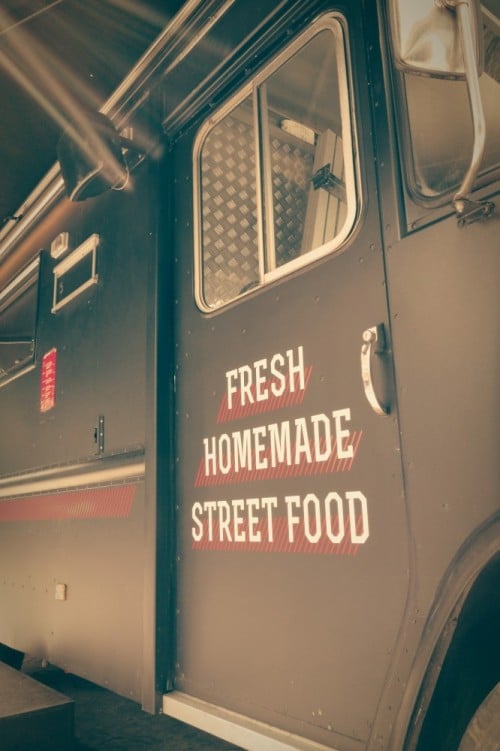Editor’s Note: Today we’re excited to present a guest post from Hannah. Hannah is the HUB‘s specialist on social issues and HR. She writes to help readers work in ways that are safer, quicker, and more productive. You can follow her here @h_spruce.
Don’t forget the three vital checks that will keep your wheels turning: local laws, food safety, and parking knowhow. Finding out if you’re doing it right might take a bit of digging.
Since the food truck industry is relatively new, and some cities have laws that aren’t clear or just aren’t in place, it’s worth contacting local governments until clearer laws appear. That won’t happen until local governments catch up with the truckin’ trend.
Until then, get to know the cities you want to operate in.
No matter where you are, you’re going to need evidence of food protection training and an impeccable attitude to food safety.
If you’re hiring staff, it might be worth periodically checking their skills with a food safety quiz so you can rest assured your staff knows their stuff.
1. Researched Local Laws?
If you want your truck to keep rollin’, be allowed to park and then, you know, serve food, you need to learn the laws of the locals.
Different laws apply to different cities and areas. Contact each if you’re struggling to find the information you need.
The licenses you need depend on the state, county or city you’re in. Head to the Department of Heath to find out the licenses you need for the local area you’re operating in.
Not all cities need you to display your license in clear view, but it’s best practice to do it.
It’s near impossible to provide a guide of what you might need because it depends on so many variables and the area you work in. So, sadly, you really do have to do the hard work yourself.
Ask yourself, do you know everything you need to know about commissaries, food handling, parking laws, zoning and bathroom locations?
If not, your research isn’t done, and you could be shut down or fined!
2. Got Food Safety Sorted?
A bad food rating, poor hygiene and sick customers can spell the end for a food place on wheels.
It’s only been recently that food trucks have shaken off the reputation of being suppliers of cheap (and dirty) street food and become the gourmet food joints of today. That’s thanks in part to today’s strict food safety regulations and frequent inspections. Food safety has helped change the public perception of food trucks as safe places to eat. But, because of this history and the smaller space to work in, food truckers have to run a tighter ship than their brick-and-mortar friends.
Plus, unlike a restaurant, your customers can peek right into your kitchen!
If you’ve got a good record and your food safety certificates are up to date, inspections tend to happen roughly once a year — but they can and do happen at any time. So it’s important to make sure you and your staff know your stuff and follow food safety rules to a tee.
Before you feel confident when it comes to having food handling covered, ask yourself:
- Is everyone trained in food handling?
- Is there an easy way to record procedures?
- Are you complying with FDA requirements?
- Do you have food protection certificates to show if requested?
- Is anything in the infrastructure of your truck preventing the safe flow of food?
3. Checked Parking Restrictions?
Every food trucker wants a prime parking spot, especially when you’re just getting started. But make sure you know the lowdown on parking in your desired spot — no one wants to be moved or fined.
Remember that parking laws can vary on different days. So be well read up on what restrictions will apply to you and be prepared for police to enforce the law to its full extent.
Some places only allow vendors to park in approved facilities with refrigeration and electricity. Others need you to rent a private parking space.
A few things to consider are:
- Can you park only on private property?
- How long can you park in your chosen space?
- Do you need to be near toilet facilities?
- How far do you have to be from brick-and-mortar restaurants? (Some cities need you to park at least 500 or 600 feet away from an established food place, and sometimes convenience stores can fall under this law!)
- If you’re planning to frequent events, do you know if you have to pay?
- Is your spot worth the cost?
Once your final checks are done, you can rest assured knowing your business is legal and inspection proof.
To dig your teeth into what FoodTruckr has to offer, make sure to like us on Facebook and follow us on Twitter, and also make sure to check out more content that we bring to the table.
There is no ads to display, Please add some
